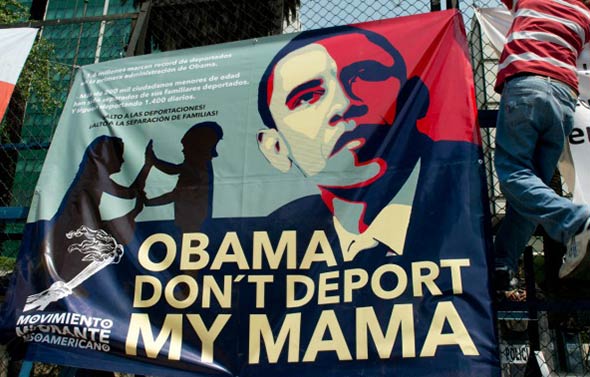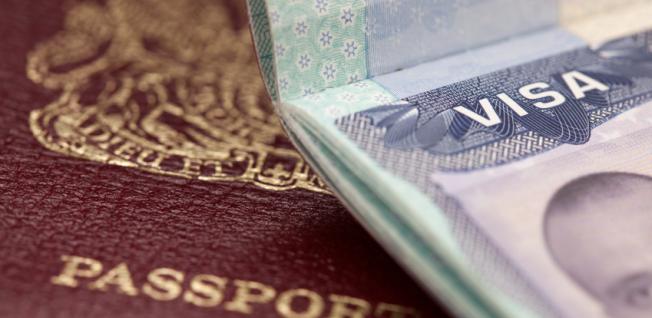Below is a summary of the most frequent types of legal protection available to an alien who is in removal proceedings. These descriptions do not contain detailed information and are subject to change due to the Congress can create new laws.
If you want to get legal help with the process of immigration and/or deportation, it is recommended to contact a lawyer who specializes in immigration.
Discretionary Relief
When a foreign national faces deportation, if eligible, he may request one or more types of Discretionary Relief. This section describes some types of Discretionary Relieves that are available during a hearing. The under administrative and judicial review subsequent to the conclusion of the hearing, discussed later.
The foreigner has the obligation to prove that he is legally eligible for receive protection and, generally, that deserves such protection on a discretionary basis.
Voluntary departure
Voluntary departure is the most common alternative to deportation and may be granted both by Immigration Judges, as by the Department of Homeland Security (DHS), which took over the functions of the former Immigration and Naturalization Service (INS). Voluntary departure avoids the stigma of forced removal, to allow the foreign national to leave the United States on your own and you return to your country of origin or to another country (if the individual is able to secure entry to that country). It is important to note that aliens who are granted voluntary departure must leave the country within the period specified by the Immigration Judge. Although the Immigration Judge has the discretion to establish a time limit shorter, to aliens who are granted voluntary departure before the conclusion of his judgment of deportation, they are given a period of 120 days to leave the country. Those who are given the remedy at the conclusion of the judgment of deportation, must leave in 60 days. In addition, to avoid being penalized for filing an appeal instead of going out of the country, the Board of Immigration Appeals (BIA) usually extends a 30-day extension for the alien to depart voluntarily.
As with other forms of discretionary relieves, certain individuals are not eligible for voluntary departure. Those who are granted voluntary departure and do not comply, they are subject to fines and 10 years are not eligible to apply for other forms of protection.
Cancellation of removal
This form of discretionary relief is available for legal permanent residents, and for those who are not permanent residents but meet the requirements. For legal permanent residents, cancellation of removal may be conferred if the individual meets the following requirements:
- Have been a permanent resident for the past 5 years;
- Has continuously resided in the United States for at least 7 years after having been legally admitted;
- Has not committed a felony or “aggravated felony” – a term that is mostly defined by the immigration laws, that in the non-migratory.
Cancellation of removal for non-residents can be granted if the alien:
- It has been present in the United States during the past 10 years;
- Has been a person of good moral character during such period;
- Has not committed a crime that could lead to deportation;
- Demonstrates that deportation would cause extreme hardship and unusual to their immediate family members [limited to a spouse of the foreigner and their child(ren)] who are citizens or legal permanent residents.
Asylum
Under the Decree of the Immigration and Nationality act (INA), the Attorney General may, at its discretion, grant asylum to an alien who qualifies as a “refugee.” Usually this requires that the asylum applicant to demonstrate his inability to return to their country of origin because she was persecuted in the past, or because you have a fear well justified of future persecution related to their race, religion, nationality, membership in a particular social group, or political opinion. However, an alien may not be eligible for asylum under certain circumstances, such as: not having sent in your application for asylum within the first year of his arrival in the United States, have been accused of a serious crime, or be a threat to national security. Other similar forms of relief are the deferment of the deportation and the application under the auspices of the United Nations Convention Against Torture (CAT, for its acronym in English).
Adjustment of immigration status
This remedy is discretionary, is available to change the immigration status of “non-immigrant” to “legal permanent resident”. Aliens who were admitted previously in the United States may apply to DHS to adjust their immigration status, while foreign nationals who are in deportation proceedings must apply before an Immigration Judge. You must meet several requirements, for example, that the alien is eligible to receive permanent residency, and that at the time of application have a visa immediately available. Foreigners who qualify to receive the visa that allows adjustment of immigration status, usually do so through a petition by your spouse (or some other family member) or an employer. Certain individuals may not change their status; this includes criminals, foreigners who were not submitted to their judgment, who have not left the country after having received the order of departure, and those whose deportation was ordered because they are not eligible to change their immigration status.
Administrative Appeals and Judicial Review
Motion to reopen or reconsider a case.
An alien may make a motion for his case to reopen, or to reconsider the previous decision. To do so, the alien requires to send the motion to the Immigration Judge or the Board of Immigration Appeals (BIA), within the appropriate time. The purpose fudamental of the motion to reopen a case is to present new evidence or additional to be substantial and which were not available when came up with the original audience. A motion for reconsideration requires a reexamination of the decision, on the grounds of alleged legal errors, and other facts. Unless there is an exception, a party may apply for both a motion to reopen, as the other to reconsider. Although there are some exceptions, generally a motion to reopen a judgment must be made not later than 90 days from the date on which it gave the final order of deportation.
The motion to reconsider the decision must be made no later than 30 days from the day we gave the final order. Making a motion does not suspend enforcement of removal, unless the interruption is ordered by:
- an Immigration Judge,
- BIA,
- DHS,
- because the alien seeks to reopen an order in absentia (in absentia order”), which refers to a decision made when the alien was absent during the trial.
Indefinite interruption deportation.
An indefinite interruption prevents the DHS to execute an order of removal, deportation, or exclusion. Depending on the situation, an indefinite interruption can be automatic or discretionary. During the time allowed for making an appeal, an alien has the immediate right to the indefinite suspension of deportation (unless it is requested that the waiver of the right of appeal), while your appeal is pending before the BIA; or while the case is before the BIA, but in the process of certification.
Except in cases involving orders of absence, to make a motion to reopen or reconsider a case does not stop the implementation of any decision taken regarding the case. In the same way, to make a request to review the case in a Federal Court not to interrupt automatically the final order of deportation. Therefore, a deportation order shall, unless the alien requests and is granted in the sole discretion of the interruption of the deportation on the part of any of the following instances: the BIA, the Immigration Judge, the DHS, or the Federal Court. This interruption is temporary and is often supplemented by a motion in writing requesting the reopening or reconsideration of a case submitted to the Court or immigration to the BIA; can also be supplemented with an appeal sent to the Federal Court.
Administrative Appeal
The BIA is the administrative body higher in authority to interpret federal immigration laws are concerned. The BIA has jurisdiction to hear appeals over the decisions of Immigration Judges and of certain decisions taken by the DHS. Both an alien and DHS may appeal the decision of an Immigration Judge. When deciding cases, the BIA may: dismiss or sustain the appeal, send the case back to the Immigration Judge that made the decision, or in rare occasions, refer the case to the Attorney General for him to take the decision. A decision from the BIA is mandatory for the DHS and Immigration Judges throughout the country, unless the Attorney General modify the decision or to regulate otherwise.
With respect to the deadline of submission, the appeal to the decision of an Immigration Judge must be received no later than 30 days after the date on which the decision was issued by the court.
Judicial Review. The Decree of the Immigration and Citizenship act (INA) grants the Federal Courts jurisdiction over certain decisions appealed from the BIA. However, subsequent acts have substantially restricted judicial review of deportation orders. An alien has 30 days from the date on which you took the final decision of deportation, to make a judicial appeal, which is typically sent to the Court of Appeals. The procedures and the application of a judicial review in immigration cases are complex and are governed by a number of decisions and interpretations of the court, which in many circuntanstancias are not entirely resolved. To better understand how judicial review could be applied to a specific case, you should consult a legal advisor qualified.
How To Get Legal Help
The process of deportation can be very difficult with a great deal of stress. If you or a loved one are facing a possible deportation or repatriation, it is important that you contact an experienced immigration lawyer to analyze the facts of the case and protect your rights.
Watch video Cancellation Of Removal
A Short Roadmap To Win Your Deportation Case










